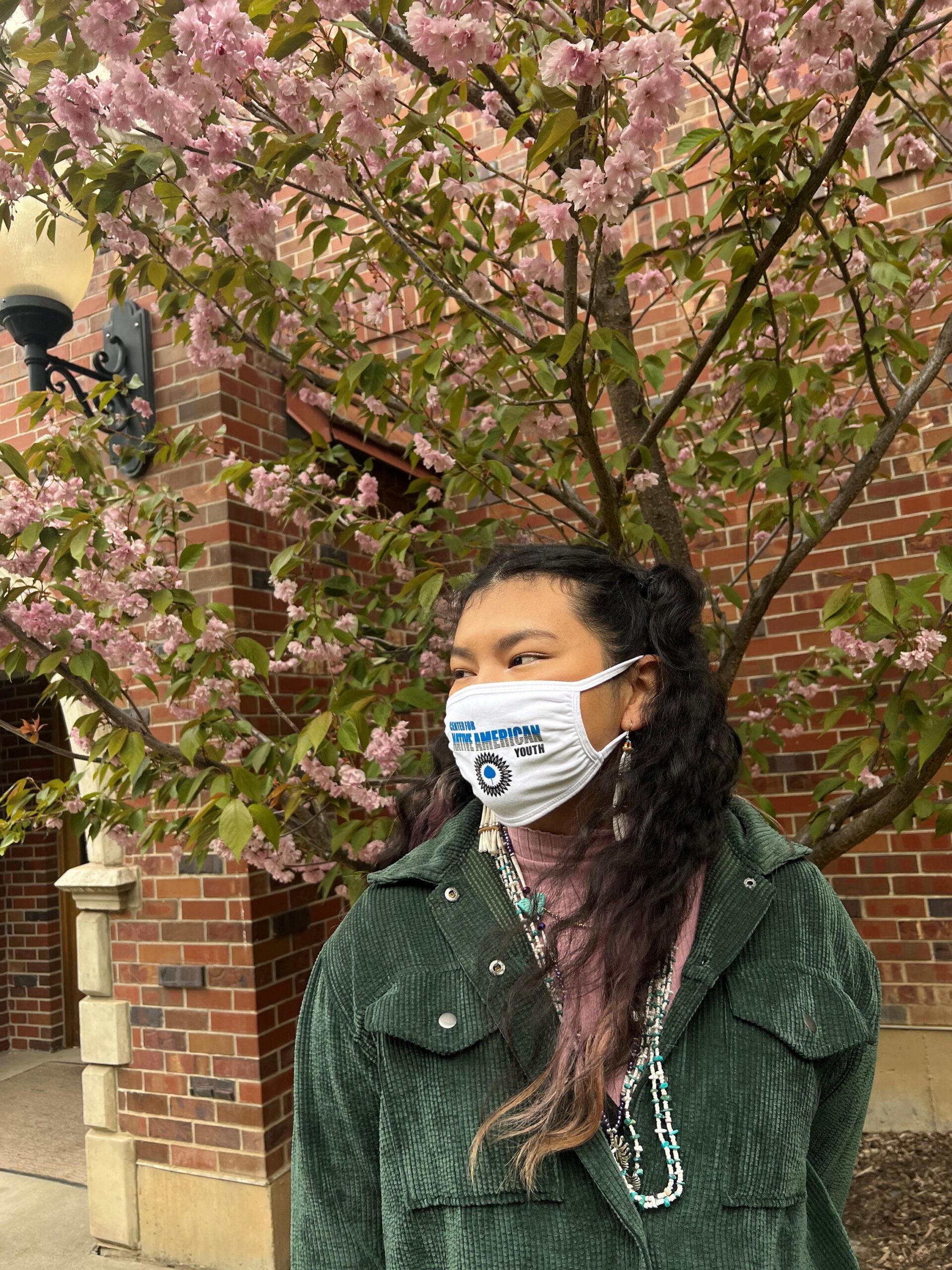The Building Indigenous Communities of Hope Fellowship is designed for Native American youth passionate about transforming the foster care system. This fellowship is done in partnership with the Center for Native American Youth, Casey Family Programs, NMCAN, and the Indian Child Welfare Act (ICWA) Law Center. We sat down with Christina Kaltsukis, a member of the inaugural cohort of fellows. You can learn more about Christina and the fellowship here.
Question One: Christina, you are incredibly passionate and active in working to transform systems to better Native youth. Can you share why it’s so important for youth to have access to programs like the fellowship and other leadership programs?
Answer: Throughout my early experiences I first realized that programs like The Building Indigenous Communities of Hope Fellowship, were not only influential but also critical to actively transforming systems for our youth. It’s important for Indigenous youth to have access to these programs so that their voices are heard. Indigenous People were forced to be silent during colonization and its long-term effect transformed our entire way of living. The seven generations before and after us have passion and resiliency. This fellowship specifically helped me find my voice. Every youth-based program that I had access to gave me a sense of purpose and a team, which made me feel secure. The work that collaborators, Indigenous youth activists, tribal elders, and organizations do over the course of their time provides a stable foundation for the future.

Question Two: We are seeing an increase in organizations seeking youth input on policy-making and social change. What advice would you give to organizations wanting to seek youth input on transforming the foster care system?
Answer: To transform a system as big as foster care, organizations specifically need to be as open-minded as possible. There are so many different backgrounds, cultures and experiences that need to be included in advocacy work. Some advice I would give those wanting to seek youth input is that they should prioritize diversity. Diversity can be, but is not limited to, culture, education, personal and shared experiences, age, and more. I say this because my experiences were different from the others and I often felt that my experiences were not as valid. Every voice needs to be heard. When the futures are held within the youth’s hands we unconsciously think of the generations after us. Just like how the generations before us did not want the generations after them to experience the same trauma they did. The youth in foster care often grow up faster, experience trauma, and may feel isolated in their experience. Organizations must have diverse community-based teams and actively listen to youth. It’s important that we don’t invalidate others’ lived experience because it was not as severe as someone else’s. Everyone who went through or narrowly avoided the foster care system are all different, but still impacted. Organizations need to look at all aspects of their work, and ensure those involved are being inclusive and educated.
Question Three: Working to change systems, like the foster care system, can seem daunting. From climate to education, youth are passionate about building a better future grounded in their culture. Do you have any advice for youth who want to become more active in the community but may be intimidated?
Answer: Yes! I have so much advice for the youth that want to be more involved in the future. It’s important that young people know no matter what you choose, whether that be your tribal youth council, fellowships like the ones at CNAY, or even advocating on social media, you need to be strong. I know being strong is broad, but that’s entirely what it comes down to. I often question myself when I feel intimidated, and it’s okay to be nervous. Resilience is key when doing this work, and as an Indigenous person you are. Remind yourself that your voice matters, often. Another piece of advice I’d share is that you need to be prepared for advocacy. Maybe it’s speaking in front of an audience, or wanting to speak your language in a public setting – prepare the best you can mentally.
I know I keep mentioning this, but as remember – as an Indigenous person, your voice matters!

